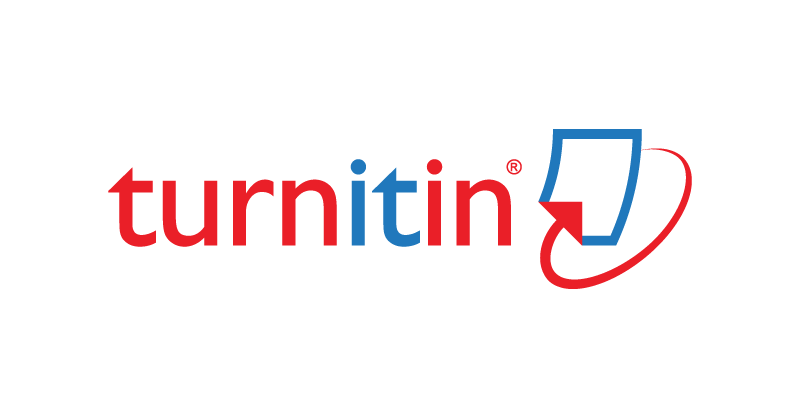Analysis of CSR Disclosure Practice in Sustainability Reports: A Case Study of Mining and Agriculture Companies in the Indonesia Sharia Stock Index
Abstract
The urgent need for CSR disclosure is not only for the company's internal needs in accountability, transparency, risk management, and business sustainability but also includes compliance with regulations and ensuring the reputation of the company's image for the trust of stakeholders, especially the surrounding community. The current situation related to the activities of mining and agricultural companies, which are risky and sensitive to the social environment and political economy, has become a major concern for various parties in Indonesia. Corporate Social Responsibility (CSR) has now become an obligation for companies that run their business activities directly or related to natural resources, which can be reported in the sustainability report. The study aims to determine the description of CSR disclosure practices in sustainability reports with the Sharia Enterprise Theory (SET) approach. The measurement indicators used are the GRI Standard and Sharia compliance, which consists of 4 categories in measuring CSR disclosure carried out by the content analysis method. This research was conducted on companies listed on the Indonesian Sharia Stock Index (ISSI). The number of samples in this study was 11 companies consisting of 6 mining companies and five agricultural companies obtained by purposive sampling technique. This study did not include the 2020-2024 period in the analysis because the global economic crisis due to the COVID-19 pandemic made companies change their priorities. The results showed that, in general, the concept of SET in CSR disclosure has been applied by companies in terms of habluminallah and habluminannas, with an average disclosure of 47 items out of 123 items per company. The company that disclosed the most was PT Timah Tbk, with a score of 65 items, and the lowest was PT Austindo Tbk, which had 30 items. Our findings have alternative implications for the government in several ways, including strengthening regulations and policies, supervision and law enforcement, incentives and support, and pressure on companies to provide space for public involvement and participation.
Full Text:
PDFReferences
Asmara, G. D., & Yekti, F. A. (2024). An Analysis of Leading Sectors in Sleman District. Jurnal Simki Economic, 7(1), 248–258. https://jiped.org/index.php/JSE
Chwiłkowska-Kubala, A., Cyfert, S., Malewska, K., Mierzejewska, K., Szumowski, W., & Prause, G. (2023). What drives organizational agility in energy sector companies? The role of strategic CSR initiatives and the dimensions of proactive CSR. Sustainable Futures, 6(October). https://doi.org/10.1016/j.sftr.2023.100133
Elbardan, H., Uyar, A., Kuzey, C., & Karaman, A. S. (2023). CSR reporting, assurance, and firm value and risk: The moderating effects of CSR committees and executive compensation. Journal of International Accounting, Auditing and Taxation, 53(September), 100579. https://doi.org/10.1016/j.intaccaudtax.2023.100579
Khoirudin, R., Wahyuni, S., & Budi Nugraha, C. (2020). View of Distribution of Optimized Public Assets Utilization in Yogyakarta Province.pdf (pp. 48–62). Jurnal Analisis Bisnis Ekonomi. https://doi.org/https://doi.org/10.31603/bisnisekonomi.v19i1.3757
Kurniawan, M. L. A., Khasanah, U., & Baharudin, S. ’Aisyah. (2023). Determinant of Property Price Through The Monetary Variables: An ARDL Approach. Jurnal Ekonomi Pembangunan: Kajian Masalah Ekonomi Dan Pembangunan, 24(1), 12–23. https://doi.org/10.23917/jep.v24i1.20588
Madah Marzuki, M., Nik Abdul Majid, W. Z., & Rosman, R. (2023). Corporate social responsibility and Islamic social finance impact on banking sustainability post-COVID-19 pandemic. Heliyon, 9(10), e20501. https://doi.org/10.1016/j.heliyon.2023.e20501
Menne, F., Hasiara, L. O., Setiawan, A., Palisuri, P., Tenrigau, A. M.,
Waspada, W., Juliana, J., & Nurhilalia, N. (2024). Sharia accounting model in the perspective of financial innovation. Journal of Open Innovation: Technology, Market, and Complexity, 10(1), 100176. https://doi.org/10.1016/j.joitmc.2023.100176
Naim, A., Darmawan, I. M. D. H., & Wulandari, N. (2021). Herding Behavior: Mengeksplorasi Sisi Analisis Broker Summary. Media Riset Akuntansi, Auditing & Informasi, 21(2), 207–226. https://doi.org/10.25105/mraai.v21i2.9502
Nasir, M. S., A.K., M. L., Andriyani, N., Wibowo, A. R., & Oktaviani, Y. (2022). Credit Guarantee the National Economic Recovery Program (PEN) for MSMEs: A Case Study of MSMEs for Bank Pembangunan Daerah DIY. Ekuilibrium : Jurnal Ilmiah Bidang Ilmu Ekonomi, 17(2), 158–170. https://doi.org/10.24269/ekuilibrium.v17i2.2022.pp158-170
Nechaev, I., & Hain, D. S. (2023). Social impacts reflected in CSR reports: Method of extraction and link to firms innovation capacity. Journal of Cleaner Production, 429(October), 139256. https://doi.org/10.1016/j.jclepro.2023.139256
Perello-Marin, M. R., Rodríguez-Rodríguez, R., & Alfaro-Saiz, J. J. (2022). Analysing GRI reports for the disclosure of SDG contribution in European car manufacturers. Technological Forecasting and Social Change, 181(February 2021), 121744. https://doi.org/10.1016/j.techfore.2022.121744
Qoyum, A., Sakti, M. R. P., Thaker, H. M. T., & AlHashfi, R. U. (2022). Does the islamic label indicate good environmental, social, and governance (ESG) performance? Evidence from sharia-compliant firms in Indonesia and Malaysia. Borsa Istanbul Review, 22(2), 306–320. https://doi.org/10.1016/j.bir.2021.06.001
Saeed, A., Noor, M., Soobaroyen, T., & Gull, A. A. (2024). Investigating the varying relevance of CSR dimensions on firm leverage: The implications for internationalized firms. Research in International Business and Finance, 71(May), 102409. https://doi.org/10.1016/j.ribaf.2024.102409
Saleh, R., & Wulandari, N. (2024). The Actualization of The Economic Movement : An Approach to The Study of Economic Growth in Indonesia. Jurnal Simki Economic, 7(2), 390–399. https://doi.org/https://doi.org/10.29407/jse.v7i2.599
Santiago, B., Scavarda, L. F., Caiado, R., & Jardim, R. (2023). Circular Sustainable Supply Chain Management Framework from the Perspective of Triple Bottom Line. Procedia Computer Science, 221, 673–680. https://doi.org/10.1016/j.procs.2023.08.037
Wijayanti, R., & Setiawan, D. (2023). The role of the board of directors and the sharia supervisory board on sustainability reports. Journal of Open Innovation: Technology, Market, and Complexity, 9(3), 100083. https://doi.org/10.1016/j.joitmc.2023.100083
Yuli, S. B. C., & Rofik, M. (2023). Unleashing open innovation: A decomposition nexus of Sharia-compliant financing and job creation. Journal of Open Innovation: Technology, Market, and Complexity, 9(4), 100162. https://doi.org/10.1016/j.joitmc.2023.100162
Yuniarti, D., & Sukarniati, L. (2021). Penuaan Petani dan Determinan Penambahan Tenaga Kerja di Sektor Pertanian. Agriekonomika, 10(1), 38–50. https://doi.org/10.21107/agriekonomika.v10i1.9789
DOI: https://doi.org/10.31294/widyacipta.v8i2.22818
Copyright (c) 2024 Nurafifah Wulandari, Rahmat Saleh

This work is licensed under a Creative Commons Attribution-ShareAlike 4.0 International License.
Index by:
Published LPPM Universitas Bina Sarana Informatika with supported by Relawan Jurnal Indonesia
Jl. Kramat Raya No.98, Kwitang, Kec. Senen, Jakarta Pusat, DKI Jakarta 10450, Indonesia

This work is licensed under a Creative Commons Attribution-ShareAlike 4.0 International License






